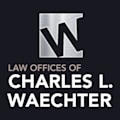Top Hagerstown, MD Health Care Fraud Lawyers Near You
Fed Trouble? Free Consult. Former Prosecutor & Team Former Federal Agents. Call/Text 24/7. Immediate Response Guaranteed!
Se Habla Español
Free Consultation
Virtual Appointments
Baltimore Premier Criminal Defense Firm, Handling Both Federal And State Cases For Over 33 Years, Including Internet Sex Crimes.
Free Consultation
Experience Matters When So Much Is On The Line. Representing Clients In All States For Federal Criminal Defense
Se Habla Español
Free Consultation
Virtual Appointments
Our nationwide team of defense lawyers includes a former U.S. Attorney, four former Federal Prosecutors, two former FBI agents and two former Army JAGS.
Free Consultation
Virtual Appointments
Hagerstown Health Care Fraud Information
Lead Counsel independently verifies Health Care Fraud attorneys in Hagerstown and checks their standing with Maryland bar associations.
Our Verification Process and Criteria
Ample Experience
Attorneys must meet stringent qualifications and prove they practice in the area of law they’re verified in.Good Standing
Be in good standing with their bar associations and maintain a clean disciplinary record.Annual Review
Submit to an annual review to retain their Lead Counsel Verified status.Client Commitment
Pledge to follow the highest quality client service and ethical standards.
What Qualifies as Health Care Fraud?
Health care fraud involves making false representations to gain money or benefits related to medical care, insurance, or government benefits. Health care fraud can be committed by anyone involved in the healthcare industry, including patients, doctors, insurance providers, and medical services companies.
State and federal law enforcement take health care fraud very seriously. The penalties can include years in prison for a felony conviction. However, some innocent people are caught up in false accusations of fraud and should consult with a criminal defense lawyer to understand their legal rights.
What Are the Types of Health Care Fraud?
There are several types of health care fraud. In some cases, fraud is committed by a prospective patient, including false statements on an insurance form. This could include using someone else’s insurance to get medical care.
More extensive healthcare fraud involves health care providers or medical services businesses. Medical providers and home health services may make a fraudulent claim to patients, insurance companies, or Medicare for compensation. Some examples of health care fraud may include:
- Unbundling, or charging separate billing codes for bundled services
- Double-billing or duplicate billing
- Billing for services that were never provided
- Fraudulent billing for medically unnecessary services
- Up-coding, or seeking reimbursement for services that should be billed at a lower rate
- Misrepresentation of the type of service provided
Kickback Fraud
Another type of fraud in health care involves kickbacks. Kickbacks are the referral fees, illegal remunerations, bribes, or rebates paid directly or indirectly for referrals in health care. Kickbacks are illegal in health care under the Anti-Kickback Statute. It is unlawful to pay for inducing or rewarding patient referrals for business involving any item or service payable by the federal healthcare programs, including drugs, supplies, or health care services.
Self-Referral Fraud
Physician self-referral laws prohibit physicians from referring patients with Medicare or Medicaid to facilities or services where the physician has a financial interest. This includes entities where the doctor’s immediate family member has a financial relationship. For example, if a doctor’s spouse is a co-owner of a radiology provider, the doctor cannot refer a patient to that provider, unless an exception applies.
Is Health Care Fraud a Felony?
Health care fraud can be charged as a misdemeanor or a felony. As a misdemeanor, a conviction could carry up to one year in jail and a fine. As a felony, health care fraud is punishable by more than a year in prison and thousands of dollars in fines.
The penalties associated with health care fraud depend on the specific facts involved. Some aggravating factors can increase the penalties, including where the fraud involved:
- Multiple incidents of fraud
- Medical identity theft
- Insurance fraud
- Money laundering
Is Health Care Fraud a Federal Crime?
Health care fraud can be a state-level crime in Maryland or a federal offense, depending on the circumstances. It is federal crime for whoever knowingly and willfully executes a scheme to:
- Defraud any health care benefit program; or
- Obtain money, property, or health care benefits by fraudulent pretenses, representations, or promises.
The penalties for a federal government fraud conviction include up to 20 years in prison. If the fraud results in death, a conviction could result in life in prison.
How is Health Care Fraud Detected?
Healthcare fraud can be detected through computerized fraud prevention systems or reporting of potential fraud. The Centers for Medicare and Medicaid Services (CMS) uses a Fraud Prevention System (FPS) to analyze healthcare providers networks to detect patterns that represent a risk of fraudulent activity. The leads are then investigated by field office agents to identify possible fraud and refer the health care fraud cases for criminal prosecution.
Why Do I Need a Health Care Fraud Defense Lawyer?
There are severe penalties for a conviction of health care fraud. A felony conviction could result in a permanent criminal record, and make it more difficult for you to find a job in the future. With a lot at stake, a criminal defense lawyer can help you fight the charges for health care fraud to avoid a criminal record. An experienced criminal defense attorney can also negotiate to get a plea deal with reduced criminal charges or minimum sentencing. If you are accused of health care fraud, you may have several legal defense options. The prosecutor has the burden of proving every element of the offense beyond a reasonable doubt. Possible criminal defenses to fraud charges include:- No intent to commit fraud
- False claims were made by mistake
- Another person was responsible for making a false claim
- Incorrect claims were caused by computer error or operator error




